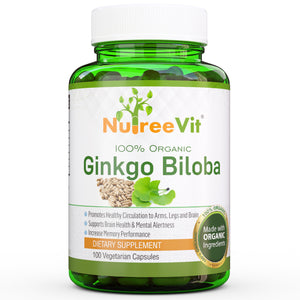Kelp, a large brown seaweed that grows in the cold coastal waters around the world, has been a staple food in many coastal cultures for centuries. With its rich array of essential nutrients, this marine superfood has gained popularity in the modern world for its impressive range of health benefits. From supporting thyroid function to improving digestive health and combating inflammation, kelp stands out as a valuable natural resource. In this blog, we will delve deeply into the benefits of kelp, backed by scientific research, and explore how you can incorporate it into your daily life to enhance your health.
1. Supporting Thyroid Function
One of the most notable benefits of kelp is its high iodine content, a mineral essential for thyroid health. The thyroid gland uses iodine to produce thyroid hormones, which regulate metabolism, energy levels, and cell growth in the body. Iodine deficiency can lead to thyroid disorders such as hypothyroidism, characterized by fatigue, weight gain, and depression.
Several studies have highlighted the importance of iodine in maintaining thyroid function. A study published in the journal Thyroid indicated that iodine from kelp can be particularly beneficial for individuals with iodine deficiency, helping to maintain proper hormonal levels and prevent thyroid disorders. Additionally, because of its natural origin, iodine from kelp is better absorbed by the body compared to synthetic iodine sources.
However, it's important to note that excessive iodine intake can also be harmful, especially for individuals with pre-existing thyroid conditions. Therefore, it's advisable to consult with a healthcare professional before adding large amounts of kelp to your diet.
2. Antioxidant Properties
Kelp is rich in antioxidants, compounds that help protect cells from damage caused by free radicals. Free radicals are unstable molecules that can damage cells and contribute to premature aging and a variety of chronic diseases, including heart disease and cancer.
One of the most potent antioxidants in kelp is fucoidan, a sulfated polysaccharide that has been extensively studied for its protective properties. A study published in Marine Drugs found that fucoidan has strong antioxidant effects, helping to reduce oxidative stress in the body. Additionally, other compounds in kelp, such as polyphenols and carotenoids, also contribute to its antioxidant properties.
These antioxidants not only protect against cellular damage but can also support cardiovascular health by reducing inflammation and improving endothelial function, which is essential for maintaining healthy blood vessels. Incorporating kelp into your diet could be an effective way to boost your intake of natural antioxidants and protect your body against oxidative stress.
3. Improving Digestive Health
Kelp is also beneficial for digestive health, largely due to its alginate content, a type of soluble fiber that can help improve digestion. Alginate has been used in traditional medicine as a thickening agent and for treating gastrointestinal disorders.
A study published in Food Chemistry showed that alginate in kelp can help reduce fat absorption in the intestines, which could be beneficial for weight management. Additionally, as a soluble fiber, alginate can act as a prebiotic, promoting the growth of beneficial bacteria in the gut. A healthy gut microbiome is crucial for proper digestion, nutrient absorption, and maintaining a healthy immune system.
Regular consumption of kelp may also help prevent constipation by increasing stool bulk and facilitating its passage through the intestines. This not only improves intestinal regularity but can also reduce the risk of digestive disorders, such as irritable bowel syndrome (IBS) and inflammatory bowel disease (IBD).
4. Weight Control
Kelp has gained attention in the health and wellness arena for its potential to aid in weight control. This is largely due to a compound called fucoxanthin, a carotenoid that gives kelp its characteristic brown color. Fucoxanthin has been the subject of recent studies for its ability to influence metabolism and promote fat burning.
A clinical study published in Diabetes, Obesity and Metabolism found that fucoxanthin can help increase metabolic rate and promote fat oxidation, leading to a reduction in body fat. Additionally, fucoxanthin may help improve insulin sensitivity, which is beneficial for individuals with insulin resistance or type 2 diabetes.
Kelp is also low in calories, making it an ideal addition to a calorie-restricted diet aimed at weight loss. You can add kelp to salads, soups, or smoothies to increase the volume of your meals without adding many calories.
5. Anti-Inflammatory Properties
Chronic inflammation is an underlying factor in many modern diseases, including heart disease, diabetes, and cancer. Kelp contains several compounds with anti-inflammatory properties, making it a useful food for combating inflammation in the body.
Fucoxanthin, in addition to its fat-burning properties, has also shown anti-inflammatory effects. A preclinical study in animals, published in Biochimica et Biophysica Acta, found that fucoxanthin can reduce the expression of inflammatory markers in the body, suggesting that kelp could be beneficial for people with chronic inflammatory conditions.
In addition to fucoxanthin, kelp contains other anti-inflammatory compounds, such as omega-3 fatty acids and polyphenols. These compounds work together to reduce inflammation and protect the body against inflammation-related diseases.
6. Supporting the Immune System
The immune system plays a crucial role in protecting the body against infections and diseases. Kelp, with its rich mix of nutrients and bioactive compounds, may help strengthen the immune system and enhance the body’s ability to fight infections.
Fucoidan, a polysaccharide found in kelp, has been studied for its ability to modulate the immune system. A study published in PLOS ONE suggested that fucoidan can enhance the activity of immune cells, such as macrophages and natural killer cells, which are essential for defending the body against pathogens.
Additionally, kelp is a good source of vitamin C, an antioxidant known for its immune-supporting properties. Vitamin C helps stimulate the production of white blood cells, which are crucial for fighting infections.
7. Natural Detoxification
Kelp has also been promoted as a natural detoxifying agent. Due to its ability to absorb minerals and toxins from seawater, kelp may help remove toxins from the body when consumed. Alginate in kelp binds to heavy metals and other toxins in the gut, aiding their elimination through the feces.
A study in Journal of Environmental Science and Health demonstrated that alginate can help reduce the absorption of heavy metals, such as lead and mercury, in the body. This suggests that kelp could be useful for individuals exposed to environmental contaminants or those seeking to support the body’s natural detoxification processes.
8. Bone Health
Kelp is a natural source of several essential minerals, including calcium and magnesium, which are crucial for bone health. These minerals help maintain bone density and prevent conditions such as osteoporosis.
Additionally, kelp contains vitamin K, which plays a role in bone protein formation and calcium regulation in the body. A study published in The American Journal of Clinical Nutrition suggested that vitamin K can help improve bone health by reducing bone resorption and increasing bone mineral density.
Conclusion
Kelp is much more than just a marine alga. With its impressive nutritional profile and wide range of health benefits, it is a superfood worth exploring and integrating into your daily diet. From supporting thyroid function and improving digestive health to combating inflammation and promoting detoxification, kelp offers a variety of properties that can enhance your overall well-being.
As always, it’s important to remember that while kelp offers many benefits, it should be consumed in moderation, especially due to its high iodine content. Consulting with a healthcare professional before making significant dietary changes is always advisable.





